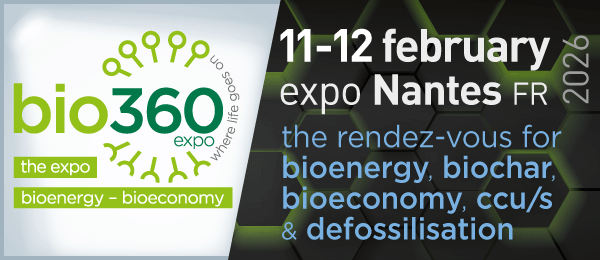Deutsche Version: www.bio-based.eu/news/nova-paper-4-remd-de
Michael Carus (nova-Institute), Lara Dammer (nova-Institute), Andreas Hermann (Öko-Institut) und Roland Essel (nova-Institute)
nova-paper #4 “Proposals for a Reform of the Renewable Energy Directive to a Renewable Energy and Materials Directive (REMD)” presents a reform proposal that aims at creating a level playing field for bio-based chemicals and materials with bioenergy and biofuels in Europe. It is fundamentally different from other reforms of the Directive being currently discussed because it opens the perspective to not only look at energy, but also at bio-based materials.
The proposal is based on the insights that the support system for bioenergy and biofuels created by the RED and the corresponding national legislations is one of the main reasons hindering the bio-based material sector from developing – and therefore the whole bio-based economy.
It is time to understand that the RED stems from a time when biomass was available in abundance and it made sense to create the framework, but that today biomass is a highly valuable raw material that should be allocated in the most efficient way possible. At the moment, the legislation causes serious market distortions for bio-based feedstocks that have been reported by a multitude of companies. Unfavourable framework conditions combined with high biomass prices and uncertain biomass supplies deter investors from putting money into bio-based chemistry and materials.1 Furthermore, several problems with the current framework have been become apparent over the last few years, as for example the fact that some Member States are not on track with meeting their quotas or that feedstock bottlenecks have appeared due to the increased and unbalanced demand for biomass.
This reform proposal aims to offer solutions to all these issues, while improving the generation of value added, employment, innovation and investment in Europe. All of these criteria can be better fulfilled by industrial material use than by energy use (of the same amount of biomass). The strengthening of the bio-based material sector will contribute to the desired industrial renaissance recently communicated by the European Commission, while still reducing greenhouse gas emissions and contributing to a strong climate policy of the EU. Furthermore, it aims at lessening the dependence on public subsidies while still using, preserving and expanding the existing structures in place for bioenergy and biofuels.
The revolutionary proposal calls for an opening of the support system to also make bio-based chemicals and materials accountable for the renewables quota of each Member State. The basic idea is to transform the RED into a REMD – a “Renewable Energy and Materials Directive”. It does not intend to establish a new quota for the chemical industry. Instead, it proposes that the material use of a bio-based building block such as bioethanol or biomethane should be accounted for in the renewables quota the same way as it counts for the energy use of the same building block, e.g. fuel. Other building blocks, such as succinic acid, lactic acid, etc. could be accounted for based on a conversion into bio-ethanol equivalents according to their calorific value. Reduction of greenhouse gas emissions could also be the basis for such a conversion.
Six more evolutionary proposals complement this comprehensive idea of a REMD. They focus especially on resource efficiency by restricting bioenergy’s share of the RED quotas, strengthening solar and wind power within the European renewables framework and by including more CO2-based fuels in the quota. It is proposed to abolish multiple counting within the quota, except for raw materials stemming from cascading or recycling processes. Furthermore, in the future representatives of the material sector should also be heard for any reform concerning energy won from biomass.
Finally, the reform paper addresses the current debate about sustainability certifications for biomass used for any purpose. It points out that sustainability certifications for the energy sector were only implemented hand in hand with considerable incentives. This aspect is often forgotten in the discussion. The paper proposes installing the same sustainability criteria for biomass used for materials that are required for the use of energy, if the same incentives are applied. In such a context, an expansion of today’s sustainability schemes to cover more criteria would be welcome.
The paper is completed by two Annexes: One includes statements of companies that feel the negative impacts of the distorted market for biomass caused by the RED; and the other presents comprehensive background information on all statements of the main paper as well as the specifics of industrial material use.
You can download nova-paper #4 „Proposals for a Reform of the Renewable Energy Directive to a Renewable Energy and Materials Directive (REMD)“ for free at www.bio-based.eu/nova-papers
We want to discuss our reform proposal and other policy ideas with experts from the bio-based industries. During a one-day workshop in Brussels on 26.06.2014, we will exchange ideas and concrete proposals for how to change the political framework for the industrial material use biomass. Out-of-the-box thinking and creative input is warmly welcomed!
If you would like to comment on this paper, indicate your support or get information on the workshop, please visit www.bio-based.eu/remd.
1: “Whereas world capacity for biobased chemicals and materials is rapidly growing, Europe clearly lags behind. Lux Research, a Boston based company, expects a doubling of global biobased capacity in 2017 to 13.2 Mton. But Europe’s share will drop from 37% in 2005 to 14% in 2017.” (www.biobasedpress.eu/2014/03/biobased-chemicals-european-share-drop-sharply)
Download this press release as PDF file: 14-05-26 nova-paper 4 – Proposals for a Reform aof RED into REMD
About nova-Institute
nova-Institute is a private and independent institute, founded in 1994; nova offers research and consultancy with a focus on bio-based and CO2-based economy in the fields of feedstock, techno-economic evaluation, markets, LCA, dissemination, B2B communication and policy. Today, nova-Institute has more than 20 employees and an annual turnover of about 2 Mio. €.
Contact
nova-Institut GmbH
Chemiepark Knapsack
Industriestrasse 300
DE-50354 Huerth (Germany)
Phone: +49 (0) 22 33-48 14 40
Email: contact@nova-institut.de
Source
nova-Institut GmbH, press release, 2014-05-26
Supplier
Lux Research, Inc.
nova-Institut GmbH
Öko-Institut e.V.
Share
Renewable Carbon News – Daily Newsletter
Subscribe to our daily email newsletter – the world's leading newsletter on renewable materials and chemicals











